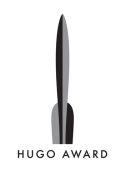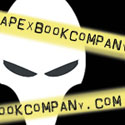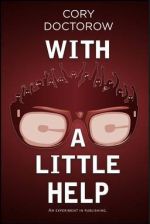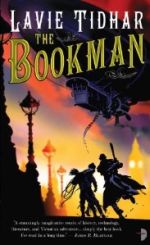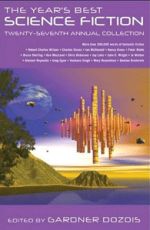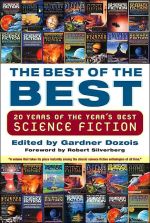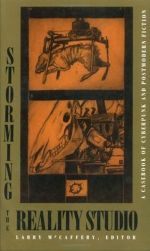Fragments of a Hologram Hogwarts: What should science fiction’s answer to Harry Potter look like?
Ever since Pyr editor Lou Anders brought up the question of “why SF hasn’t had its Harry Potter” during an interview with David Alastair Hayden in Redstone’s first issue, and Charlie Jane Anders promptly picked up the question in i09, I’ve been wondering just what it would even mean for scifi to have a Harry Potter.
Anders’s response to the question is that scifi has already had its Harry Potter. He offers Orson Scott Card’s Ender’s Game series and Frank Herbert’s Dune novels as examples fitting the bill. A number of fans quickly rushed to plug their own favorite candidates for the title in response to Ander’s follow-up. Some of these other prospective SFHPs include Heinlein’s Starship Troopers and Have Spacesuit Will Travel, Keith Laumer’s Retief series, Harry Harrison’s Stainless Steel Rat series, Jack McDevitt’s Alex Benedict and Priscilla Hutchins novels, Larry Niven’s Known Space stories, the multi-author Robot City series, Phillip Pulman’s His Dark Materials trilogy, and Suzanne Collins’s Hunger Games trilogy. The suggestions which seemed to garner the most support by far were (not surprisingly) Star Wars and Star Trek – not novels at all (though they both spawned many), but they certainly have influenced a generation of authors and fans alike. Yet all these various answers beg the question, because the question itself is both vague and ambiguous.
It’s vague because people interpret the question in different ways. What do we mean when we ask, “What is scifi’s Harry Potter?”? Surely we don’t mean that we want for someone (J.K. Rowling, herself, perhaps?) to write Harry Potter and the Deteronic Frombotzer. We could instead mean, “Where is the series of scifi novels which will introduce millions of new readers to the genre in such a way that it will revitalize the industry the way Rowling’s books revitalized fantasy?” Or we could mean, “Where is the scifi book that is going to make it ‘cool’ to be a fan?” Or we can, more cynically, mean, “Where is the scifi series which is going to become a world-wide bestseller, blockbuster film series, and multi-billion-dollar merchandising franchise?” (And how can I be the one to write it?) Or we can mean something highly specific like, “Where is the scifi series which will take a character from pre-puberty to adulthood so that the reader can grow up with the protagonist and make a lasting connection which then will transfer to other books and authors in the genre?” Or “Where is the scifi story which will resonate with fans of the genre and non-fans alike by invoking the universal hero’s quest?” Clearly Rowling’s books have done all this for fantasy. But depending on which of these questions one is really asking, different answers will appear.
The question is also ambiguous, because one can easily replace the future tense verbs in the various interpretations above with the past perfect. Many people seem to think scifi has already had its Harry Potter, so the question “What is scifi’s Harry Potter?” is assumed already to have an answer. And in a way, it does. Practically every scifi fan can recall the book or author or series which first captured his or her imagination and made her or him a lifelong scifi fan. (My own gateway drugs were Burroughs’s Martian tales and Heinlein’s so-called “juvenile” novels.) But there doesn’t seem to be one single scifi book or author or series which has done this for as large a number of people as the Harry Potter series has for fantasy, though I’m inclined to believe Anders (who I expect has marketing data to support it) when he says Ender’s Game is “still selling like hotcakes” and that Dune is “cited almost as often.”
Both of the SFHP candidates which Anders mentions seem fitting, and not just because they sell well. They have some underlying similarity in common with Rowling’s story arc. Ender Wiggin and Paul Atreides, like Harry Potter (and Luke Skywalker and King Arthur, I might add), are identified in their youth as being different from other children. They have special powers, partly as a result of their mysterious pedigrees, though they don’t realize their true background until they are singled out for special schooling to develop their hidden talents. A formidable and predestined enemy (Formics, Vladimir, Voldemort, Vader, Lot), attempts to have them either killed or brought over to the “Dark Side.” Each hero undergoes either a metaphorical or a literal descent into the underworld. And in the end, of course, they each save their worlds (or in some cases, galaxies) from destruction.
It’s not really all that surprising that these SFHP stories, which predate HP by decades, have garnered (and continue to garner) such popular appeal. Each essentially follows the prototype ur-blockbuster, the “Hero’s Journey” archetype which Joseph Campbell (1949) has dubbed the “monomyth” (a term from Finnegan’s Wake). It’s the same pattern found in many of the world’s great religions – Osiris, Moses, Buddha, Jesus (which is why evangelical Christian groups’ continued protests against Harry Potter have always struck me as epically ironic).
September 1, 2010 7 Comments







